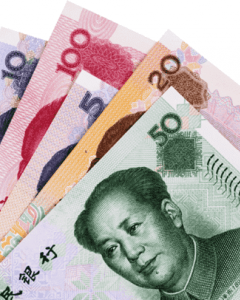Yen Continues Downward Spiral as Euro Strengthens - Insights into GDP and Inflation Figures
The recent movements in the foreign exchange market have caught the attention of investors and analysts alike. The yen, for instance, has been experiencing a decline in its value, while the euro has been strengthening.
The recent movements in the foreign exchange market have caught the attention of investors and analysts alike. The yen, for instance, has been experiencing a decline in its value, while the euro has been strengthening. These shifts have been influenced by various factors, including GDP growth, inflation data, and central bank policies. In this article, we will delve into these developments and provide detailed insights on their implications for the global economy.

The Bank of Japan (BoJ) played a crucial role in the yen's recent performance. By loosening its grip on interest rates, the central bank created an environment conducive to the yen's depreciation. Consequently, the Japanese currency has experienced a series of losses, albeit with the potential to achieve its first monthly gain against the US dollar since March. This trend highlights the intricate relationship between monetary policies and currency fluctuations.
While the yen was facing downward pressure, the euro was on an upward trajectory. Economic data revealed that the eurozone's economic growth had expanded slightly, while inflation had ticked lower. These are positive indicators for the European economy, which contributed to the strengthening of the euro. However, it is important to note that these improvements occurred amid concerns surrounding structural shifts in the global economy.
Looking forward, the upcoming US non-farm payrolls report will play a pivotal role in shaping the Federal Reserve's interest rate decision in September. Investors and analysts eagerly await this data, as it will provide vital insights into the health of the US labor market. Additionally, central bank leaders are set to gather at the Fed's symposium in Jackson Hole, Wyoming, where discussions on the global economy's structural shifts will take center stage. These conversations will influence future monetary policy decisions and potentially impact currency movements.
The dollar, as measured against a basket of major currencies, remained relatively stable during these developments. However, when compared to the yen, the US currency experienced a notable rise following the BoJ's intervention. The central bank's decision to maintain ultra-low interest rates while adjusting its bond yield curve control policy led to volatility in the yen. As the BoJ seeks to mitigate the impact of rising bond yields, the Japanese currency may continue to face challenges in the future.
Beyond Japan and the US, other Asian economies have also experienced notable movements in their currencies. In China, manufacturing activity contracted for the fourth consecutive month in July, which raised concerns about the country's economic prospects. However, the China-exposed Australian dollar and Chinese shares gained support from news of additional measures aimed at boosting economic recovery. The Australian dollar and offshore yuan both responded positively to these efforts, further highlighting the complex dynamics in the region.
The dollar's performance in the foreign exchange market also deserves attention. With the Federal Reserve's recent interest rate hike, investors have begun to question the sustainability of the US dollar's strength. The prospects of a less aggressive rate-hike cycle have led the dollar to face the possibility of a monthly loss against the yen, euro, and pound. This shift in sentiment underscores the importance of closely monitoring economic indicators and central bank policies when assessing currency movements.
In terms of inflation, the United States experienced a slower rate of growth in June, with underlying price pressures receding. These developments have alleviated some of the pressure on the Federal Open Market Committee (FOMC) to continue raising interest rates. Similarly, the eurozone witnessed a decline in inflation in July, while the second quarter showed a greater-than-expected expansion. These divergent trends in inflation levels suggest unique challenges for central banks in their decision-making processes.
As we look ahead, the European Central Bank's recent policy meeting raised the possibility of a rate pause in September. Economic data, such as the eurozone's inflation levels and GDP growth, will play a critical role in determining the future course of action for central banks. While uncertainties linger, the strengthening of the euro and pound suggests optimism in the market. The Bank of England's policy meeting, set to take place on Thursday, will provide further insights into the monetary policy outlook.
Recent developments in the foreign exchange market have showcased the intricate relationship between central bank policies, economic data, and currency movements. The yen's extended losses, alongside the euro's firming stance, reflect a shifting global landscape. Key economic indicators, such as GDP growth and inflation, will continue to shape central bank decisions and impact currency values going forward. As investors navigate these dynamics, staying informed about the latest updates and macroeconomic trends is crucial for making informed decisions.
Yen Continues Downward Spiral as Euro Strengthens - Insights into GDP and Inflation Figures
Breaking: Ten Arrested in Singapore for Multi-Billion Dollar Money Laundering Case
In a significant development, ten individuals have been arrested in Singapore for their involvement in a multi-billion dollar money laundering case. Stay updated with the latest news and investigations on this high-profile case.
In a significant development, ten individuals have been arrested in Singapore for their involvement in a multi-billion dollar money laundering case. Stay updated with the latest news and investigations on this high-profile case.
Read moreEuropean Shares Surge as Eurozone Inflation Drops: Will ECB Halt Interest Rate Hikes?
European shares surge as eurozone inflation drops, raising hopes of ECB halting interest rate hikes. Despite a poor performance, softer inflation data leads to gains in real estate and technology shares.
European shares surge as eurozone inflation drops, raising hopes of ECB halting interest rate hikes. Despite a poor performance, softer inflation data leads to gains in real estate and technology shares.
Read moreUK Regulators Shake Up Financial Sector with Stricter Diversity Standards
The Financial Conduct Authority (FCA) and the Prudential Regulation Authority (PRA) in the UK are proposing stricter diversity standards to address workplace bullying and sexual harassment in the financial sector. Learn more about the measures aimed at creating a safer and inclusive environment within organizations.
The Financial Conduct Authority (FCA) and the Prudential Regulation Authority (PRA) in the UK are proposing stricter diversity standards to address workplace bullying and sexual harassment in the financial sector. Learn more about the measures aimed at creating a safer and inclusive environment within organizations.
Read moreSweden's Bankruptcy Rates Skyrocket by 14%, Raising Concerns for Labor Market
Concerns for the labor market in Sweden as bankruptcy rates skyrocket by 14%. Recent data from UC highlights the downturn in sectors such as construction, hospitality, and restaurants.
Concerns for the labor market in Sweden as bankruptcy rates skyrocket by 14%. Recent data from UC highlights the downturn in sectors such as construction, hospitality, and restaurants.
Read moreUSD Resurgence: Dominating Global Financial Landscape
Explore the remarkable resurgence of the USD in the global financial landscape, its impact on other currencies, and implications for businesses and individuals in international trade and investment.
Explore the remarkable resurgence of the USD in the global financial landscape, its impact on other currencies, and implications for businesses and individuals in international trade and investment.
Read moreChina's Economic Challenges: Preventing a Vicious Cycle with the Yuan
Explore the economic challenges faced by China, including the sacrifice of the Yuan to prevent a vicious cycle of low demand and declining output. Learn why experts believe immediate action is crucial.
Explore the economic challenges faced by China, including the sacrifice of the Yuan to prevent a vicious cycle of low demand and declining output. Learn why experts believe immediate action is crucial.
Read moreUSD Near Longest Bull Streak in 9 Years as Optimistic Economic Data Supports
Discover why the USD is on the verge of its longest rising streak since 2014, driven by encouraging US economic data. Although this trend raises doubts about future interest rate hikes by the US Federal Reserve, the Yuan is facing pressures with falling values domestically and internationally due to increasing capital flow concerns and a widening bond yield gap with developed economies. Stay informed on these developments impacting global currency markets.
Discover why the USD is on the verge of its longest rising streak since 2014, driven by encouraging US economic data. Although this trend raises doubts about future interest rate hikes by the US Federal Reserve, the Yuan is facing pressures with falling values domestically and internationally due to increasing capital flow concerns and a widening bond yield gap with developed economies. Stay informed on these developments impacting global currency markets.
Read moreWeakness of Yen Reflects Interest Rate Difference, Poses Valuation Challenges
Explore the factors behind the weakness of the yen and its impact on global economies. The valuation challenges arise from the interest rate difference between Japan and other markets. Gain insights into the concerns of investors and policymakers surrounding this devaluation trend.
Explore the factors behind the weakness of the yen and its impact on global economies. The valuation challenges arise from the interest rate difference between Japan and other markets. Gain insights into the concerns of investors and policymakers surrounding this devaluation trend.
Read moreChina's PBoC Takes Action as Yuan Reaches 16-Year Low
As the yuan hits its lowest level in 16 years, the People's Bank of China (PBoC) is implementing measures to counteract the ongoing decline. Explore the PBoC's efforts to address the currency's depreciation, which is comparable to levels seen during the 2007-2008 global financial crisis. Stay updated on China's attempts to stabilize its currency amidst challenging economic circumstances.
As the yuan hits its lowest level in 16 years, the People\'s Bank of China (PBoC) is implementing measures to counteract the ongoing decline. Explore the PBoC\'s efforts to address the currency\'s depreciation, which is comparable to levels seen during the 2007-2008 global financial crisis. Stay updated on China\'s attempts to stabilize its currency amidst challenging economic circumstances.
Read more













